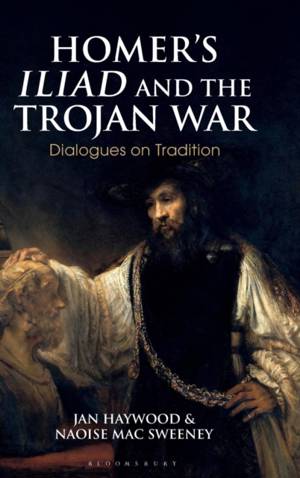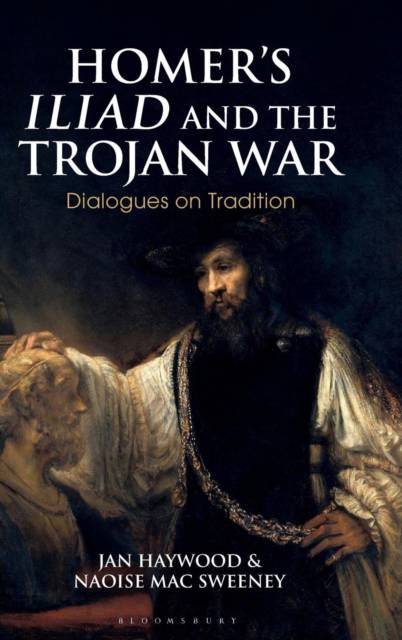
Bedankt voor het vertrouwen het afgelopen jaar! Om jou te bedanken bieden we GRATIS verzending (in België) aan op alles gedurende de hele maand januari.
- Afhalen na 1 uur in een winkel met voorraad
- In januari gratis thuislevering in België
- Ruim aanbod met 7 miljoen producten
Bedankt voor het vertrouwen het afgelopen jaar! Om jou te bedanken bieden we GRATIS verzending (in België) aan op alles gedurende de hele maand januari.
- Afhalen na 1 uur in een winkel met voorraad
- In januari gratis thuislevering in België
- Ruim aanbod met 7 miljoen producten
Zoeken
€ 271,45
+ 542 punten
Omschrijving
In this new volume, Jan Haywood and Naoíse Mac Sweeney investigate the position of Homer's Iliad within the wider Trojan War tradition through a series of detailed case studies. From ancient Mesopotamia to twenty-first century America, these examples are drawn from a range of historical and cultural contexts; and from Athenian pot paintings to twelfth-century German scholarship, they engage with a range of different media and genres.
Inspired by the dialogues inherent in the process of reception, the book adopts a dialogic structure. In each chapter, paired essays by Haywood and Mac Sweeney offer contrasting authorial voices addressing a single theme, thereby drawing out connections and dissonances between a diverse suite of classical and post-classical Iliadic receptions.
The resulting book offers new insights, both into individual instances of Iliadic reception in particular historical contexts, but also into the workings of a complex story tradition. The centrality of the Iliad within the wider Trojan War tradition is shown to be a function of conscious engagement not only with Iliadic content, but also with Iliadic status and the iconic idea of the Homeric.
Inspired by the dialogues inherent in the process of reception, the book adopts a dialogic structure. In each chapter, paired essays by Haywood and Mac Sweeney offer contrasting authorial voices addressing a single theme, thereby drawing out connections and dissonances between a diverse suite of classical and post-classical Iliadic receptions.
The resulting book offers new insights, both into individual instances of Iliadic reception in particular historical contexts, but also into the workings of a complex story tradition. The centrality of the Iliad within the wider Trojan War tradition is shown to be a function of conscious engagement not only with Iliadic content, but also with Iliadic status and the iconic idea of the Homeric.
Specificaties
Betrokkenen
- Auteur(s):
- Uitgeverij:
Inhoud
- Aantal bladzijden:
- 240
- Taal:
- Engels
- Reeks:
Eigenschappen
- Productcode (EAN):
- 9781350012684
- Verschijningsdatum:
- 22/03/2018
- Uitvoering:
- Hardcover
- Formaat:
- Genaaid
- Afmetingen:
- 156 mm x 234 mm
- Gewicht:
- 508 g

Alleen bij Standaard Boekhandel
+ 542 punten op je klantenkaart van Standaard Boekhandel
Beoordelingen
We publiceren alleen reviews die voldoen aan de voorwaarden voor reviews. Bekijk onze voorwaarden voor reviews.









